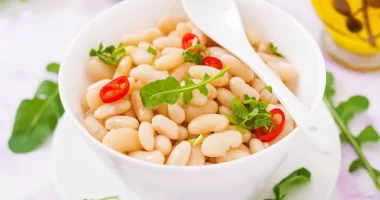Ultra-processed foods are foods that have been industrially processed, often with the addition of artificial ingredients, sugar, fat, and salt. They are often designed to be highly palatable and convenient, and they can be addictive in some people.

Though food addiction is not a diagnosable condition according to the DSM-5, a new study suggests that ultra-processed foods have highly palatable characteristics that may lead to addictive behavior in some people.
There is a growing body of research that suggests that ultra-processed foods may trigger the same brain pathways as drugs of abuse. For example, a recent study published found that ultra-processed foods high in refined carbohydrates and added fats caused compulsive consumption, had mood-altering effects, and triggered strong urges in rats.
Another study, published in the journal PNAS in 2023, found that people who ate more ultra-processed foods were more likely to have binge eating disorder, a type of eating disorder characterized by compulsive overeating.
The addictive potential of ultra-processed foods is likely due to a number of factors, including their high content of sugar, fat, and salt. These ingredients can trigger the release of dopamine, a neurotransmitter that plays a role in reward and motivation. Additionally, ultra-processed foods are often designed to be highly palatable, meaning that they are very tasty and rewarding to eat. This can make it difficult for people to resist eating them, even if they know that they are unhealthy.
Scientists from the United States, Brazil, Spain, and the Fralin Biomedical Research Institute at VTC call for more research into the potential for ultra-processed food to contribute to food addiction in a study published on October 9 in the British Medical Journal.
The Yale Food Addiction Scale (YFAS) — a measure of food addiction using DSM-5 criteria for substance use disorder — has provided new insight into whether ultra-processed food has addictive qualities.
Two recent systematic reviews of research, which included 281 studies from 36 countries, found that the overall prevalence of ultra-processed food addiction using YFAS was 12% in children and 14% in adults, according to the study’s authors.
The scientists believe that this validates food addiction as a diagnosis. But why would ultra-processed foods cause addictive behavior, and could labeling these foods as addictive have global health consequences?
It is important to note that not everyone who eats ultra-processed foods will become addicted to them. However, the research suggests that these foods can be addictive in some people, and it is important to be aware of the risks.
Here are some tips for reducing your consumption of ultra-processed foods:
- Cook more meals at home using fresh, whole ingredients.
- Limit your intake of processed snacks and beverages.
- Avoid foods that are high in sugar, fat, and salt.
- Choose lean protein sources, such as fish, chicken, and beans.
- Eat plenty of fruits and vegetables.
If you are concerned that you may be addicted to ultra-processed foods, talk to your doctor. They can help you develop a plan to reduce your intake and improve your overall health.
Don’t miss: Radiation therapy descriptions that are “toxic” can scare cancer patients away.







